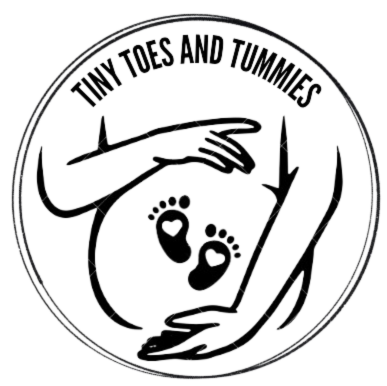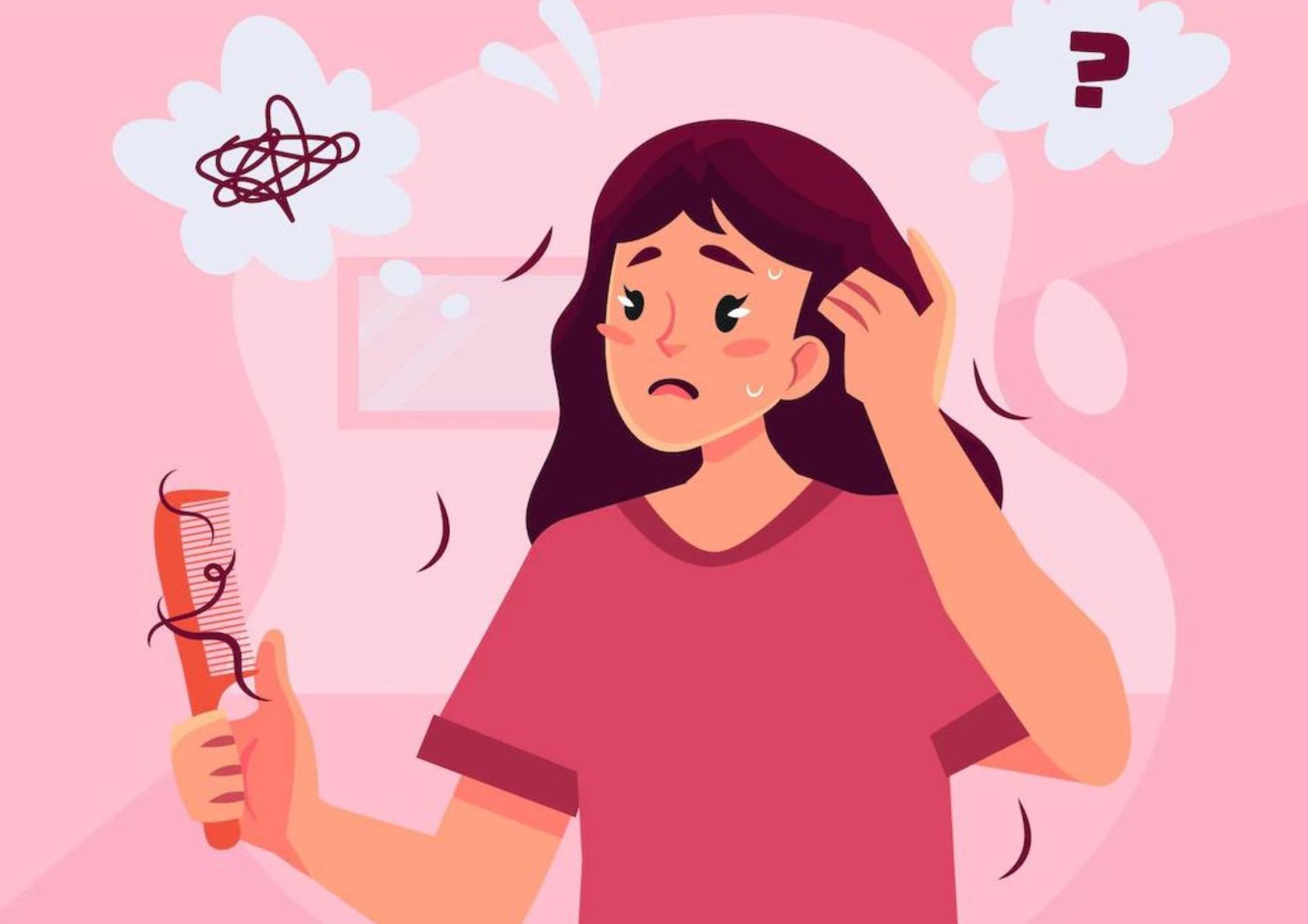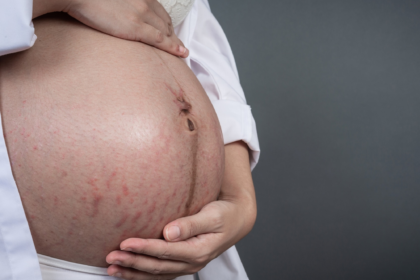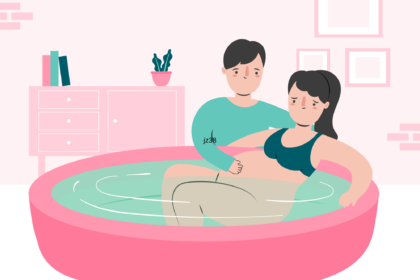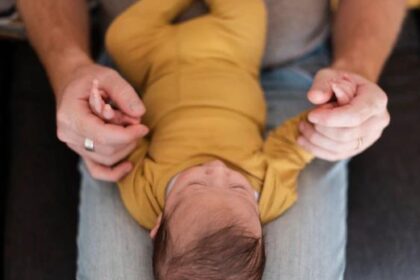Post-pregnancy hair fall is a common concern among new mothers. It’s a condition that can be quite distressing, but rest assured, it’s a temporary phase. This article aims to provide a comprehensive understanding of post-pregnancy hair fall, why it occurs, when it stops, and what can be done to improve it. We will also delve into Indian remedies and diet recommendations that can help manage this condition.
Why Does Post-Pregnancy Hair Fall Occur?
The primary reason for hair fall after pregnancy is the change in hormones. During pregnancy, the levels of estrogen in your body increase. This hormone plays a crucial role in maintaining pregnancy and also has a significant impact on your hair.
Estrogen prolongs the growing phase of hair, known as the anagen phase. This leads to thicker, lusher locks that many women enjoy during their pregnancy. You might have noticed your hair looking more voluminous and healthier while you were pregnant. This is because your hair was in the growth phase for a longer duration due to the increased estrogen levels.
However, after childbirth, the estrogen levels drop back to normal. This sudden shift causes the hair to enter the shedding phase, also known as the telogen phase. This phase is a part of the natural hair growth cycle where around 10-15% of your hair is in the resting phase before it falls out. But in the case of post-pregnancy hair fall, a larger percentage of hair enters this phase, resulting in significant hair loss. This condition is often referred to as postpartum hair fall or telogen effluvium.
It’s important to note that this hair fall is not due to the hair becoming weak or unhealthy. It’s simply a result of the hormonal changes in your body. The hair that falls out after pregnancy is the hair that would have normally shed if you weren’t pregnant. Pregnancy just delays this process, causing more hair to fall out at once after childbirth.
When Does Post-Pregnancy Hair Fall Stop?
Typically, post-pregnancy hair fall begins around three months after childbirth. This is because the hair growth cycle operates on a three-month cycle. So, the hair that was in the resting phase after childbirth starts to fall out after about three months.
Post-pregnancy hair fall can continue up to a year. However, most women notice a decrease in hair fall around the six-month mark. By the time your baby turns one, your hair should be back to its pre-pregnancy state. Remember, every woman’s body is different, and the timeline can vary. Some women might experience hair fall for a shorter duration, while others might experience it for longer.
It’s also important to note that other factors can contribute to hair fall after pregnancy. These include stress, lack of sleep, and inadequate nutrition. Taking care of a newborn can be stressful and exhausting, and this can worsen hair fall. Therefore, it’s crucial to take care of your physical and mental health during this period.
How to Improve Post-Pregnancy Hair Fall?
There are several ways to manage and improve post-pregnancy hair fall. Here are some tips:
- Maintain a Healthy Diet: A balanced diet rich in vitamins and minerals can help improve hair health. Your hair needs nutrients like protein, iron, vitamins A, C, D, E, and B vitamins to grow. Make sure you are getting a variety of fruits, vegetables, lean proteins, and whole grains in your diet. A well-balanced diet will not only improve your hair health but also contribute to your overall well-being.

- Stay Hydrated: Drinking plenty of water can help in maintaining the health of your hair. Water helps in hydrating your hair and scalp, keeping them healthy. It also aids in flushing out toxins from your body, which can contribute to healthier hair. Aim to drink at least 8 glasses of water a day.
- Gentle Hair Care: Avoid hairstyles that pull on the hair like tight ponytails or braids. These can cause stress on your hair and lead to breakage. Use a wide-toothed comb to detangle your hair. Start from the ends and work your way up to prevent breakage. Also, avoid brushing your hair when it’s wet as wet hair is more prone to breakage.
- Avoid Heat Styling: Heat can damage your hair and exacerbate hair fall. Try to air-dry your hair as much as possible. If you need to use a hairdryer, use it on a cool setting. Avoid using straighteners and curling irons as they can cause further damage to your hair. If you must use heat styling tools, use a heat protectant to minimize the damage.
- Regular Trimming: Regular trimming can help in maintaining the health of your hair. It removes the split ends and prevents them from moving up the hair shaft. Aim to get your hair trimmed every 6-8 weeks.
Home Remedies for Post-Pregnancy Hair Fall
Indian remedies for hair fall are renowned for their effectiveness. Here are a few you can try:
- Coconut Oil Massage: Massaging your scalp with warm coconut oil can stimulate blood flow and promote hair growth. Coconut oil is rich in fatty acids that penetrate inside the hair shaft and reduce protein loss from hair. It also has antibacterial properties that can protect your scalp from infections. For best results, massage your scalp with warm coconut oil at least once a week.
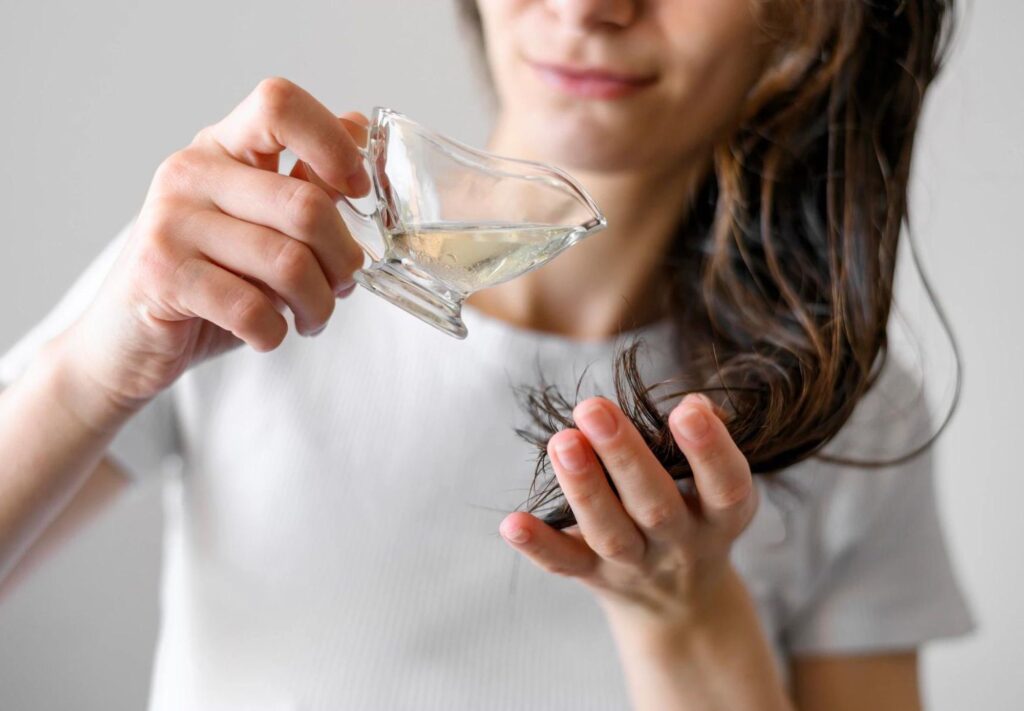
- Amla: Amla, or Indian gooseberry, is rich in Vitamin C and antioxidants. Vitamin C is essential for collagen production, a protein that helps in hair growth. You can consume amla raw, in juice form, or use it as a hair mask. To make a hair mask, mix amla powder with lime juice and apply it to your hair and scalp. Leave it on for an hour before rinsing it off. This can help in strengthening your hair and reducing hair fall.
- Fenugreek Seeds: Fenugreek seeds, also known as methi, have been used in Indian households for centuries to treat hair fall. Fenugreek seeds are rich in protein, iron, vitamin C, potassium, and lecithin, all of which are beneficial for hair health. Soak the seeds overnight, grind them into a paste, and apply it to your hair and scalp. Leave it on for about 30 minutes before washing it off. This can help in strengthening the hair roots and promoting hair growth.
- Bhringraj: Known as the king of herbs for hair, Bhringraj is a medicinal herb that has been used in Ayurveda for centuries to treat hair fall. You can make a Bhringraj hair mask by mixing Bhringraj powder with water to form a paste. Apply this paste to your hair and scalp, leave it on for about 20 minutes, and then rinse it off. This can help in promoting hair growth and reducing hair fall.
- Onion Juice: Onion juice is rich in sulfur, which helps in promoting hair growth. It also has antibacterial properties that can help in treating scalp infections. Extract the juice from an onion, apply it to your scalp, leave it on for about 30 minutes, and then wash it off. This can help in stimulating your hair follicles and promoting hair growth.
- Green Tea: Green tea is rich in antioxidants, which can help in promoting hair growth and reducing hair fall. Brew a cup of green tea, let it cool, and then use it to rinse your hair. Leave it on for about an hour, and then rinse it off. This can help in stimulating hair growth and improving hair health.
- Egg Mask: Eggs are rich in protein, which is essential for hair growth. They also contain sulfur, zinc, iron, selenium, phosphorous, and iodine, which can help in promoting hair health. Make an egg mask by mixing one egg with a tablespoon of olive oil. Apply this mask to your hair and scalp, leave it on for about 20 minutes, and then rinse it off. This can help in strengthening your hair and reducing hair fall.
- Yogurt Mask: Yogurt is rich in vitamins B5 and D, which are beneficial for hair health. It also has probiotic bacteria that can help in promoting hair growth. Make a yogurt mask by mixing two tablespoons of yogurt with one tablespoon of honey. Apply this mask to your hair and scalp, leave it on for about 30 minutes, and then rinse it off. This can help in nourishing your hair and reducing hair fall.
Diet Recommendations
A nutritious diet plays a crucial role in combating post-pregnancy hair fall. Here are some Indian diet recommendations:
- Protein-Rich Foods: Include foods like lentils, chickpeas, and paneer in your diet. These are rich in protein, which is essential for hair growth. Hair is primarily made up of protein, and a lack of protein in the diet can lead to hair loss. Aim to include a source of protein in each of your meals.
- Iron-Rich Foods: Foods like spinach, beetroot, and pomegranate are rich in iron and can help in reducing hair fall. Iron helps in the production of hemoglobin in your blood. Hemoglobin carries oxygen for the growth and repair of cells in your body, including the cells that stimulate hair growth. Include a variety of iron-rich foods in your diet to ensure adequate iron intake.
- Vitamin C: Foods like oranges, lemons, and amla are rich in Vitamin C, which aids in the absorption of iron. Vitamin C is also an antioxidant that protects your hair from damage. Include a source of Vitamin C in your meals to enhance iron absorption.
- Omega-3 Fatty Acids: Foods like flaxseeds and walnuts are rich in Omega-3 fatty acids, which can help in improving hair health. Omega-3 fatty acids nourish the hair and support thickening. They also reduce inflammation, which can lead to hair loss. Include a source of Omega-3 fatty acids in your diet daily.
In conclusion, post-pregnancy hair fall is a temporary phase that many new mothers experience. With the right care, diet, and remedies, you can manage and improve your hair health during this period. Remember, it’s always best to consult with a healthcare professional if you’re experiencing severe hair fall. It’s important to remember that hair fall is a normal part of the post-pregnancy journey, and with time and care, your hair will regain its normal growth pattern.
